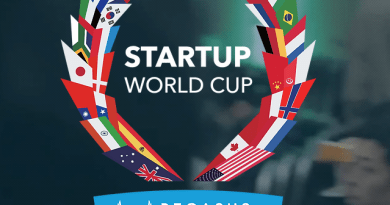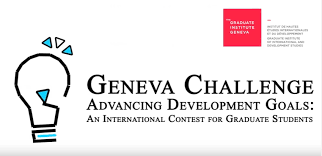GSK Africa Open Lab 2024 for Early-stage Scientists is open for applications
The GSK Africa Open Lab is seeking applications from early-career African scientists who are interested in conducting research on infectious diseases. The lab is specifically looking for proposals that contribute to the understanding of infectious disease epidemiology, prevention, and control. They are also interested in proposals that address gaps in knowledge and improve access to medicines and vaccines for infectious diseases in Africa.
To be eligible, applicants must demonstrate how their research will address specific health needs and engage with stakeholders to bring about changes in health policy and practice. The research project can involve population-based or clinical studies, as well as laboratory-based analysis of field or clinical samples. However, projects focused solely on in vitro studies or animal models will not be considered.
Critieria
- To apply, applicants must meet certain criteria. They must be African scientists in the early stages of their research and academic career, which includes basic biomedical scientists, clinically qualified investigators, or public health researchers.
- They should not have previously received a major research grant of more than £100,000 as a principal investigator, and they should be no more than five years from their highest postgraduate qualification. Career breaks and time spent outside of academic research will be taken into consideration.
- Applicants should have a minimum formal qualification of a graduate degree, with most applicants expected to have an MSc, PhD, or MD. They can hold a lecturer appointment, a junior fellowship, or be in another research staff position.
- Applicants must have a proven track record and ongoing dedication to health-related research, as well as the necessary skills and experience to carry out the proposed work. It is essential to provide evidence of research output, such as publications in peer-reviewed journals, conference presentations, contributions to clinical guidelines or policy documents.
- Candidates who are employed by a research or academic institution in sub-Saharan Africa (SSA) are encouraged to apply. Moreover, applications from historically underrepresented population groups and institutions are strongly encouraged.
Eligibility
To be eligible, applicants must be nationals of a sub-Saharan African country and based in an institution in SSA.
The research project should meet the following criteria:
1. The research proposal should be relevant to disease understanding in the following areas:
– Malaria
– Tuberculosis
– Antimicrobial resistance (AMR) linked to these infectious diseases
– Enteric infections
– Other neglected tropical diseases and emerging infectious diseases of particular relevance for Africa.
2. The research must address one or more of the following:
– Infectious disease epidemiology
– Pathophysiology
– Aetiology
– Prevention and treatment of primary disease
– Significant gaps in knowledge about the diversity and causes of disease
– Disease presentation and variations in clinical features
– Responses to medicines and vaccines
– The emergence of antimicrobial resistance linked to these infectious diseases and antibiotic stewardship
– Mechanisms for improving access to and optimizing the use of medicines and vaccines in SSA.
3. The research project should generate significant data that can strengthen future funding proposals, potentially leading to additional grant funding from other organizations and/or research collaborations in the long term.
Proposals must also demonstrate how the research will address specific health needs and engage with stakeholders to bring about changes in health policy and practice. Projects focused on drug or vaccine discovery, as well as those using animal models, will not be considered.
Benefits:
– Receive up to £100,000 per award for a project lasting up to 36 months.
– Funding covers various project costs, including equipment, field work, data collection, consumables, and research assistance.
– Opportunities for training activities and career development, such as short courses and visits to research institutions.
– Scientific support from GSK throughout the award term, tailored to the project’s needs.
– Mentorship from scientists in Africa and globally.
– Funding does not cover tuition fees for degrees or fellowships.
How to Apply:
– Two-stage review process, with only successful concept stage applicants invited to submit a full application.
– Visit the GSK Supported Studies website and register to access the preliminary concept application form.
– Complete the form and submit it along with your CV (use the provided CV Template).
– Read the ‘Conditions for Applicants’ before submitting.
– Proposals assessed by a scientific panel, including experts in African infectious diseases.
– Competitive proposals invited to submit a full application.
– Note: Unsuccessful applications at the preliminary stage will not receive written feedback.
Reviewers usually evaluate the following aspects:
1. Whether the applicant meets the eligibility criteria.
2. The scientific value of the proposed project.
3. The importance and potential influence of the research.
4. The feasibility of scaling up the research.
5. The potential impact of the project on the applicant’s career development.
Deadline: 29 January 2024.. For additional details, please visit the official website of the GSK Africa Open Lab.





